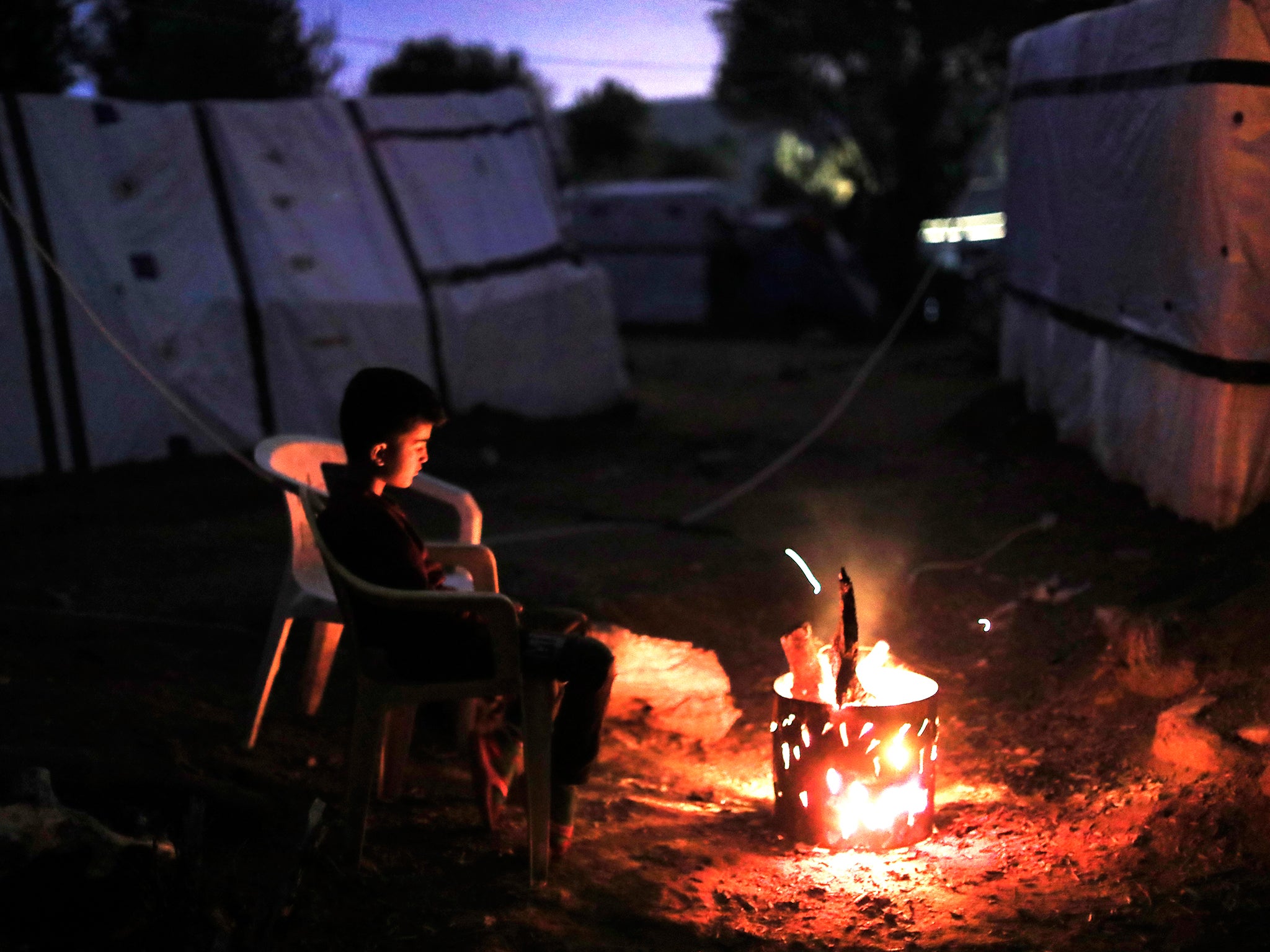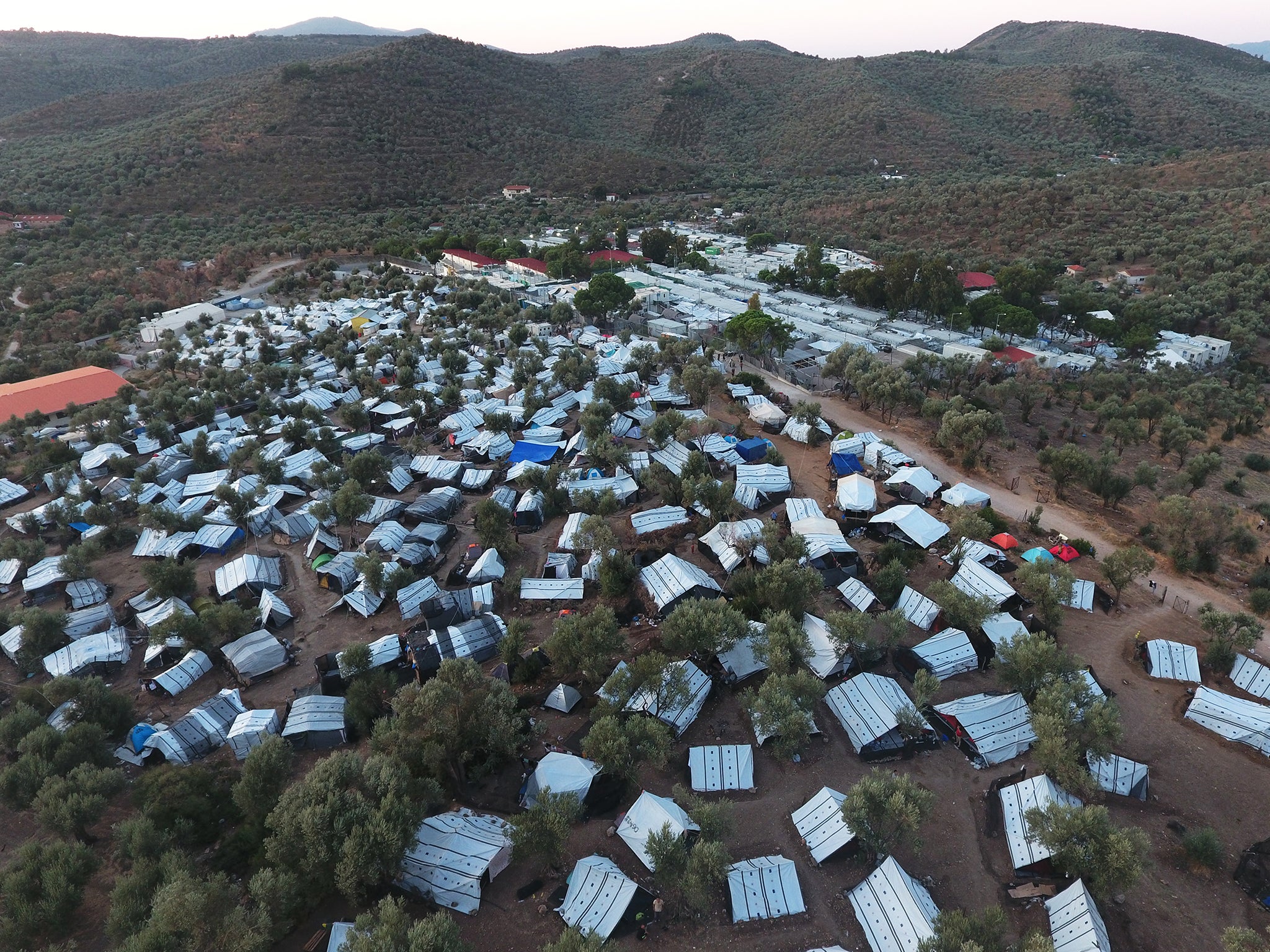Hundreds of torture survivors, pregnant women and children ‘abandoned’ in Greek refugee camps, Oxfam says
Conditions ‘often dangerously overcrowded, squalid, unhygienic and unsafe for people that are already suffering from very traumatic experiences’, spokesperson says
Hundreds of pregnant women, unaccompanied children and survivors of torture have been “abandoned” in refugee camps in Greece, Oxfam has said.
The charity’s report found mothers have been returned from hospital to live in tents as early as four days after giving birth by caesarian section, and survivors of sexual violence and other traumatic experiences have been lumped together with other refugees in Moria, a camp on Lesbos where fights regularly break out and around two-thirds of residents say they never feel safe.
Vulnerable refugees are “faced most often with severe overcrowding”, Renata Rendón, Oxfam’s head of mission in Greece, told The Independent. “For much of the year Moria and other EU hotspots on the Greek islands have been at more than double their capacity. So often vulnerable people are crammed into a container if they’re lucky, a makeshift tent if they’re not, with up to nine or 10 or even more people.”
She said those in the camps “often lack sufficient access to water, sanitation and hygiene”, and many report feeling unsafe. “People are in these camps for extended periods of time, they have a lack of information, a lack of interpreters, so they’re often very frustrated which can lead to violence within the camp.”
The refugees also lack access to medical care, which Ms Rendón said is “one of the big issues that comes up when we’re talking about the identification of vulnerable people in particular”.
Refugees also lack access to medical care, which Ms Rendón said is “one of the big issues that comes up when we’re talking about the identification of vulnerable people in particular”.
The report blamed chronic understaffing and flawed screening processes for the breakdown of the system intended to identify and protect the most vulnerable asylum seekers.
As a result, hundreds of the most vulnerable refugees have been thrown together and forced to live in Moria, the European Union camp used for registering and processing new asylum claims, which is at almost twice its capacity.
“The conditions are often dangerously overcrowded, squalid, unhygienic and unsafe for people that are already suffering from very traumatic experiences, sometimes mental health illnesses, sometimes physical disabilities,” Ms Rendón said.
There was only one government-appointed camp doctor in Lesbos responsible for screening as many as 2,000 new arrivals each month for much of 2018, the report noted, and medical screenings stalled in November when the doctor quit.
The report found a “particularly worrying” trend of teenagers and survivors of torture being detained after authorities failed to recognise them as vulnerable.
“There are people of 28 different nationalities that are often detained immediately upon arrival, essentially because of their nationality,” Ms Rendón said.
“These people are put into detention before they have an opportunity to go through their asylum claim, before their asylum claim is reviewed, and the big problem here is once you’re put into detention it’s much more difficult to access services that are already difficult to access for people who are not in detention.”

Those who are detained are “often held in small spaces with many other young men in overcrowded conditions”, she added. “We know that the experience of detention can be very traumatic, particularly for people who are vulnerable and haven’t been identified as such.”
One 28-year-old asylum seeker from Cameroon was locked up for five months based on his nationality despite his serious mental health issues.
The report said no one checked his physical and mental health before he was detained, and he did not see a psychologist for a month.
“We had just two hours a day when we were allowed to get out of the container,” he said. ”The rest of the time you are sitting in a small space with 15 other men who all have their own problems.”

Conditions in the camp have declined as winter brought heavy rain to Lesbos. The temperature over the next week is predicted to drop and there could be snow.
Oxfam is calling on the Greek government and EU member states to deploy more doctors and psychologists and fix the screening system “so vulnerable people aren’t falling through the cracks”, Ms Rendón said.
The charity said more people seeking asylum should be transferred to mainland Greece on a regular basis, especially those who are vulnerable.

“These circumstances will continue until there is a more fair shared responsibility scheme,” Ms Rendón added, “so we’re calling on EU member states to share responsibility for receiving asylum seekers.”
Join our commenting forum
Join thought-provoking conversations, follow other Independent readers and see their replies
Comments